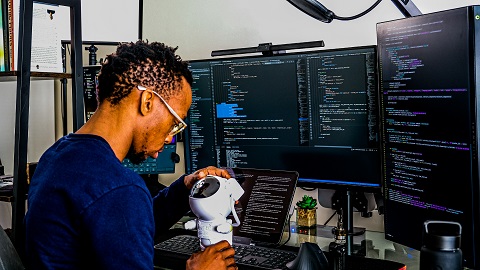Vertical AI is rapidly gaining momentum across Africa’s growing tech ecosystem, and it’s clear why. As the continent faces unique challenges and opportunities in sectors like healthcare, agriculture, finance, and education, businesses are turning to vertical AI for tailored, industry-specific solutions. Rather than relying on broad, generalized AI tools, vertical AI offers focused capabilities that address the distinct needs of each sector, allowing African businesses to unlock greater value and efficiency.
In industries like healthcare, vertical AI is particularly transformative. African nations often struggle with access to quality healthcare, a shortage of skilled professionals, and the need to address public health challenges like malaria, tuberculosis, and HIV/AIDS. Vertical AI is stepping in to bridge these gaps, offering targeted solutions like predictive analytics for disease outbreaks, AI-powered diagnostics, and personalized treatment recommendations. These specialized tools enable healthcare providers to offer more accurate, timely care, improving patient outcomes across the continent.
Similarly, in agriculture—an industry central to Africa’s economy—vertical AI is helping farmers optimize crop yields, monitor soil health, and predict weather patterns with unprecedented accuracy. AI solutions tailored for the agricultural sector can process vast amounts of data from sensors, satellite imagery, and weather reports to make recommendations on irrigation, pest control, and crop rotation, enabling farmers to boost productivity while minimizing resource use.
In the financial sector, vertical AI is playing a critical role in improving access to financial services and reducing fraud. AI-powered systems can assess credit risk, even in areas with limited traditional credit data, allowing for greater inclusion of unbanked populations. Additionally, AI is used to detect fraudulent transactions, manage risk, and optimize investment strategies, giving African financial institutions the tools to better serve their clients and improve financial security.
Beyond these core sectors, vertical AI is enhancing businesses across various industries, such as retail, manufacturing, and education. For example, AI can help retailers deliver personalized shopping experiences, while in education, it can create custom learning pathways for students based on their needs and performance.
A key player in making vertical AI a reality for African businesses is Dejin. Dejin is at the forefront of bringing customized AI solutions to the African market, developing industry-specific tools that solve real-world problems. By focusing on the unique needs of sectors such as healthcare, agriculture, and finance, Dejin is helping African businesses implement AI that delivers tangible value. Their specialized approach ensures that organizations are not just using AI as a buzzword, but rather leveraging it to make data-driven decisions and drive innovation in their industries.
In conclusion, the rise of vertical AI in Africa reflects the continent’s need for specialized, industry-specific solutions that can address unique challenges and opportunities. As sectors like healthcare, agriculture, and finance evolve, vertical AI will be key in driving efficiency, innovation, and growth. With companies like Dejin leading the way, African businesses are poised to harness the power of AI to thrive in a competitive global landscape.



